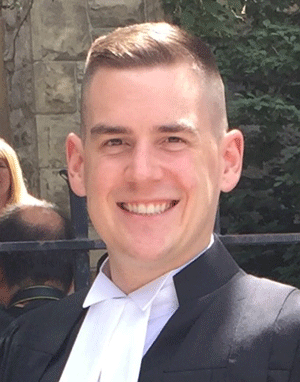Military personnel are subject to court martial for all federal offences, even when those offences have nothing to do with the accused’s military service.
 That’s the ruling from the Supreme Court of Canada today. The court issued four related decisions dealing with the constitutionality of the National Defence Act, which mandates court martial for all federal offences.
That’s the ruling from the Supreme Court of Canada today. The court issued four related decisions dealing with the constitutionality of the National Defence Act, which mandates court martial for all federal offences.
In the decision, indexed under R. v. Moriarty, military officers convicted of various offences — such as fraud and drug trafficking — argued before the Court Martial Appeal Court that their Charter rights were being violated by “overbroad” provisions that denied them a jury trial for non-military offences.
That argument was shot down decisively today. In a decision written by Justice Thomas Cromwell on behalf of a unanimous court, the SCC upheld the CMAC’s finding that NDA provisions mandating court martial are indeed constitutional in that they serve the purpose of maintaining discipline, efficiency and morale in the military service.
“The objective of maintaining ‘discipline, efficiency and morale’ is rationally connected to dealing with criminal actions committed by members of the military even when not occurring in military circumstances,” the decision states. “The behaviour of members of the military relates to discipline, efficiency and morale even when they are not on duty, in uniform, or on a military base.”
The decision, moreover, strikes down the doctrine of “military nexus,” which requires a connection, albeit a loose one, between the nature of the offence and the accused’s military service. Rather, the SCC finds that simply being a member of the military establishes the requisite connection.
Ian Kasper, a criminal defence lawyer in Toronto and an executive member of the Canadian Bar Association’s military law section, says the decision is really about whether military personnel are still subject to military law even when they’re off duty.
“What happens if someone is off duty and they go get in a bar fight off the base?” says Kasper. “How is that really connected to the military at all?”
“What the Supreme Court is saying is, if you’re in the military and these rules apply to you and you’re going out and breaking laws, then obviously that’s going to have an effect on morale and discipline in the unit . . . and that’s going to have an impact on the military itself.”
There could be an even greater effect on “efficiency,” Kasper points out, given the extent to which military operations would be hampered by having soldiers caught in the slow-moving gears of the civilian justice system. “If you’ve been arrested by a civilian police force, you’re not going to be able to report for duty. If you’re held for bail or held in custody, that affects the ability of the military to perform its task. . . . So the rational connection is pretty easy to see.”
What Kasper finds most interesting about the decision is how it treats the reserve forces, who are only punishable under court martial when on duty. So, while regular armed forces personnel can be thought of as always punishable under court martial, and civilians never, reserve forces move in and out of the jurisdiction.
“I think it’s interesting that the Supreme Court specifically mentioned that the reserve force is different,” says Kasper, who wonders aloud whether that differentiation could be applied elsewhere. “Should the reserve force be treated differently in sentencing, for example, or other areas of the military system as well?”










